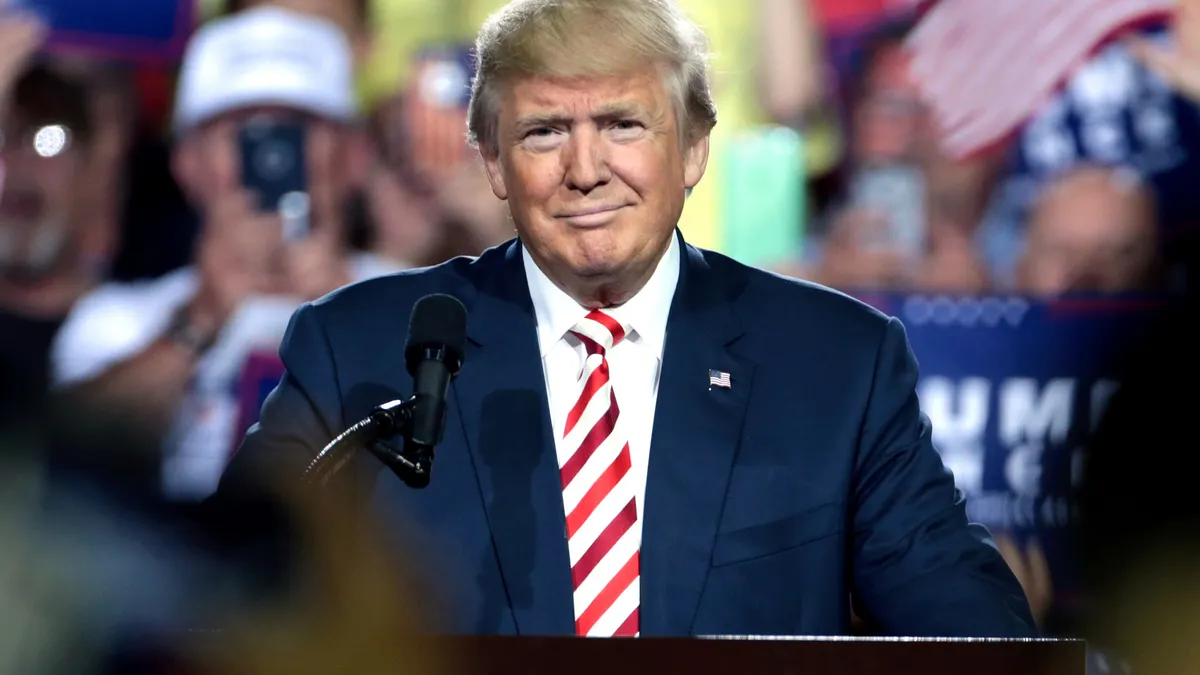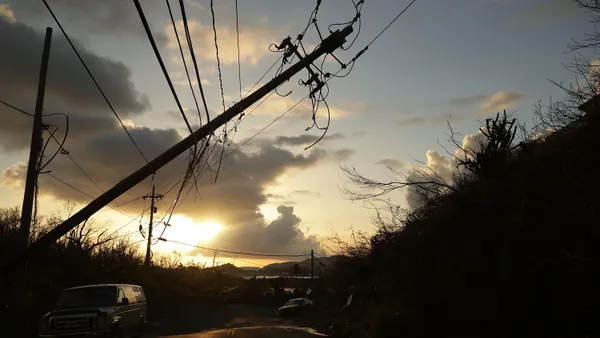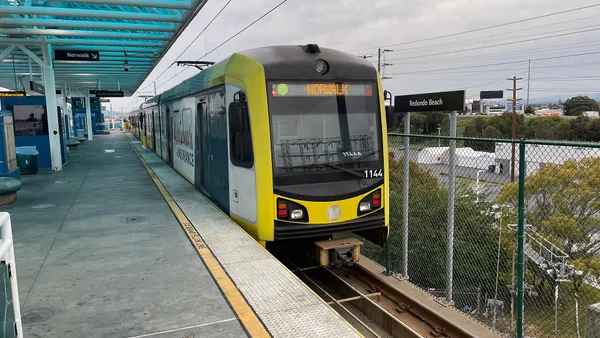Dive Brief:
- President Donald Trump signed an executive order Tuesday that aims to place new restrictions on foreign worker visas and limit the materials that public agencies can buy from foreign manufacturers, according to USA Today.
- Changes outlined in the "Buy American, Hire American" order include a revamp of the H-1B skilled-worker lottery program. The order will increase restrictions on the waivers that public agencies use to buy goods from overseas, require agency chiefs to sign off on any exemptions to domestic sourcing requirements and mandate that transportation projects use steel that has been "melted and poured" in the U.S.
- The executive order calls for a 220-day review period by agency heads to figure out where they can make the changes necessary to comply, so there will be no change to existing rules for several months.
Dive Insight:
Critics argue that the order will make materials for transportation and other public works projects more expensive and could even derail Trump's proposed $1 trillion infrastructure plan.
While construction industry associations are typically in favor of anything that will boost American manufacturing, they are also sensitive to how these types of rules affect their member companies, who might see their bottom lines shrink under such restrictive "Buy American" sourcing policies.
In fact, prior to Trump signing the measure, Associated General Contractors of America CEO Stephen Sandherr said in a press release, "If the president and Congress are serious about rebuilding the nation's aging infrastructure, it is vital to avoid artificially pushing up the cost of materials that go into these projects."
As for the labor component of Trump's executive order, foreign visa programs require a level of labor predictability that construction companies rarely have, so that portion of the order should have limited impact on the industry in general.
In the first days of his administration, Trump also signed executive orders mandating that all steel used in pipeline projects be American-made but hit a public relations bump when it was revealed that all the steel for the Keystone XL pipeline had already been placed with foreign manufacturers, exempting the massive project from compliance.











